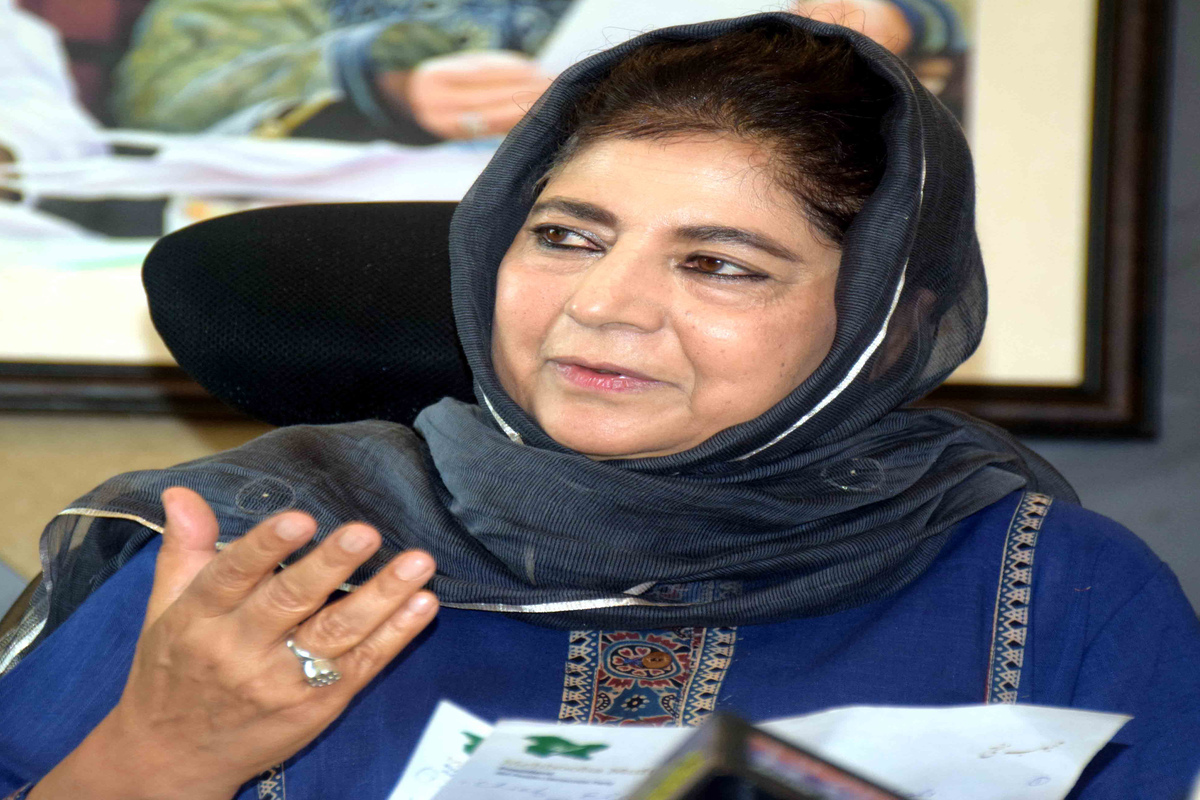J&K CM Omar Abdullah consoles father of martyred cop Jagbir Singh at wreath-laying ceremony
The Chief Minister laid a wreath on the casket containing the body of Jagbir Singh at a ceremony that was held at the police headquarters ground here.
Describing the former Prime Minister Atal Bihari Vajpayee as a “great statesman”, PDP President and former chief minister Mehbooba Mufti on Wednesday said that Kashmiris will always remember him for his efforts to understand and address their pain.
Statesman News Service | Jammu | December 25, 2024 7:33 pm

File Photo
Describing the former Prime Minister Atal Bihari Vajpayee as a “great statesman”, PDP President and former chief minister Mehbooba Mufti on Wednesday said that Kashmiris will always remember him for his efforts to understand and address their pain.
Paying tributes to Vajpayee on his 100th birth anniversary, Mehbooba said his slogan of “Kashmiriyat, Insaniyat, Jamhooriyat” (Kashmir’s cultural identity, humanity and democracy) resonated deeply with people here. His initiatives to resolve the complex issue of Jammu & Kashmir were a testament to his commitment to peace and stability.”
Advertisement
“Overall Vajpayee’s legacy in Kashmir is one of empathy, understanding and a commitment to peace and stability. His efforts to address the intractable problems facing the region continue to inspire hope for a better future,” she said.
Advertisement
Mehbooba praised Vajpayee for his remarkable leadership, stating that his approach to peace and diplomacy, especially with Pakistan, remains a vital part of his legacy.
“Despite the challenges of the Kargil conflict and the 2001 Parliament attack, Vajpayee did not shy away from pursuing talks with Pakistan, a stance that distinguished him as a leader who valued dialogue over conflict.”
“Vajpayee was a man with a vision for peace. Despite the turmoil of Kargil and the attack on Parliament, he never abandoned the path of dialogue with Pakistan. His determination to engage in talks, even in the face of adversity, demonstrated his belief in diplomacy as the only solution for lasting peace,” Mehbooba added.
The PDP leader also highlighted Vajpayee’s acknowledgment of the late Mufti Mohammad Sayeed’s “healing touch” policy, which was instrumental in improving the situation in Jammu and Kashmir.
Vajpayee’s support for this policy led to practical steps, such as the opening of roads to connect both sides of Jammu and Kashmir, that contributed to easing the strained atmosphere in the region and provided much-needed relief to its people.
“Vajpayee’s recognition of Mufti Sayeed’s healing touch policy was a turning point for Kashmir. The opening of roads and the beginning of confidence-building measures were the first real signs that the people of Kashmir were being given the attention they deserved. It was a significant moment in the peace process,” she said.
She noted that Vajpayee’s vision for a peaceful, prosperous India, built on the foundation of communication and mutual understanding, continues to shape the discourse in Jammu and Kashmir even today.
Tanvir Sadiq, chief spokesman of the ruling National Conference, said Atal Bihari Vajpayee was the most popular Prime Minister of this country and he had a very different relationship with Jammu and Kashmir.
Vajpayee wanted to maintain friendly relations with the neighbouring countries, he said.
Advertisement
The Chief Minister laid a wreath on the casket containing the body of Jagbir Singh at a ceremony that was held at the police headquarters ground here.
The body of another policeman was spotted on Friday by a drone near the spot of yesterday’s fierce gunfight in the far-flung forest area of the Kathua district, taking the death toll of the police personnel to four.
Three policemen and two Pakistani terrorists were killed in a gunfight in J&K’s Kathua district on Thursday when a fresh encounter broke out in the area
Advertisement
